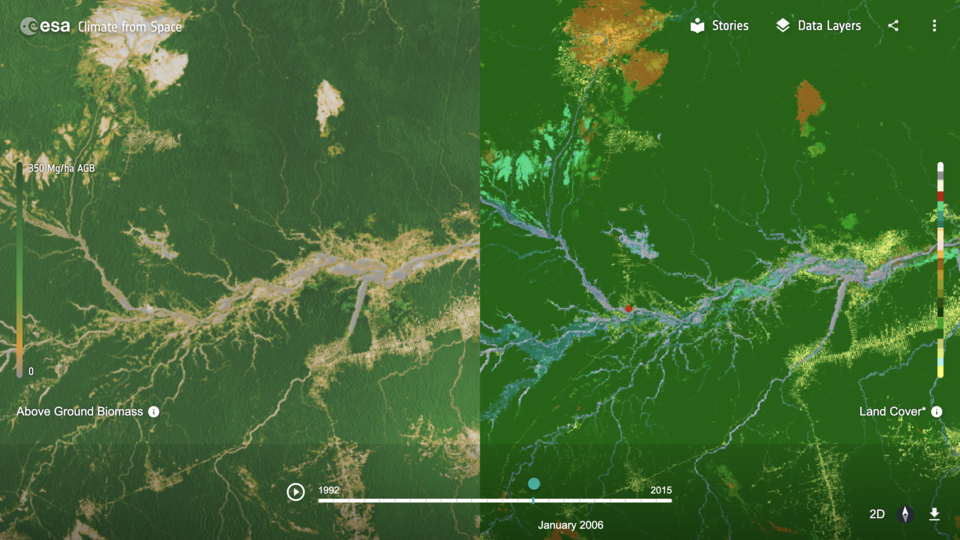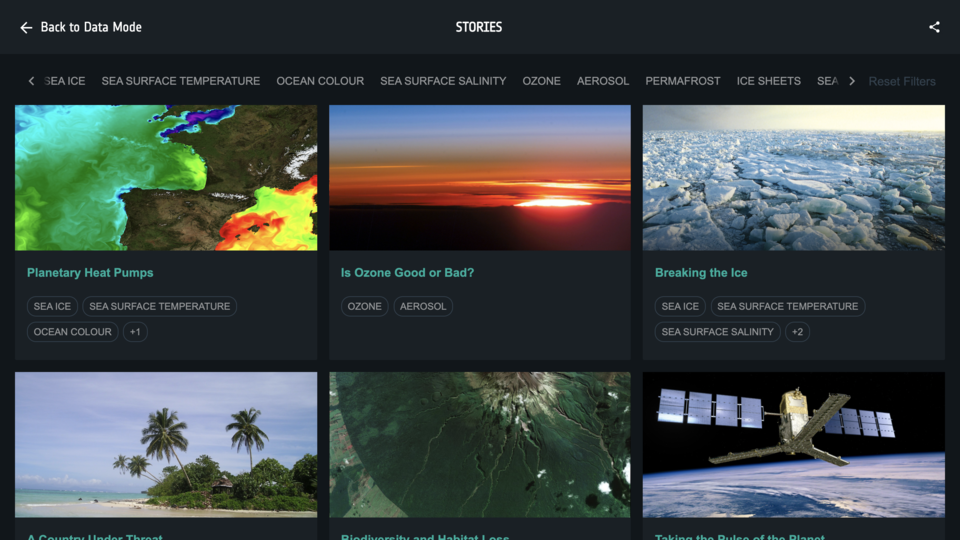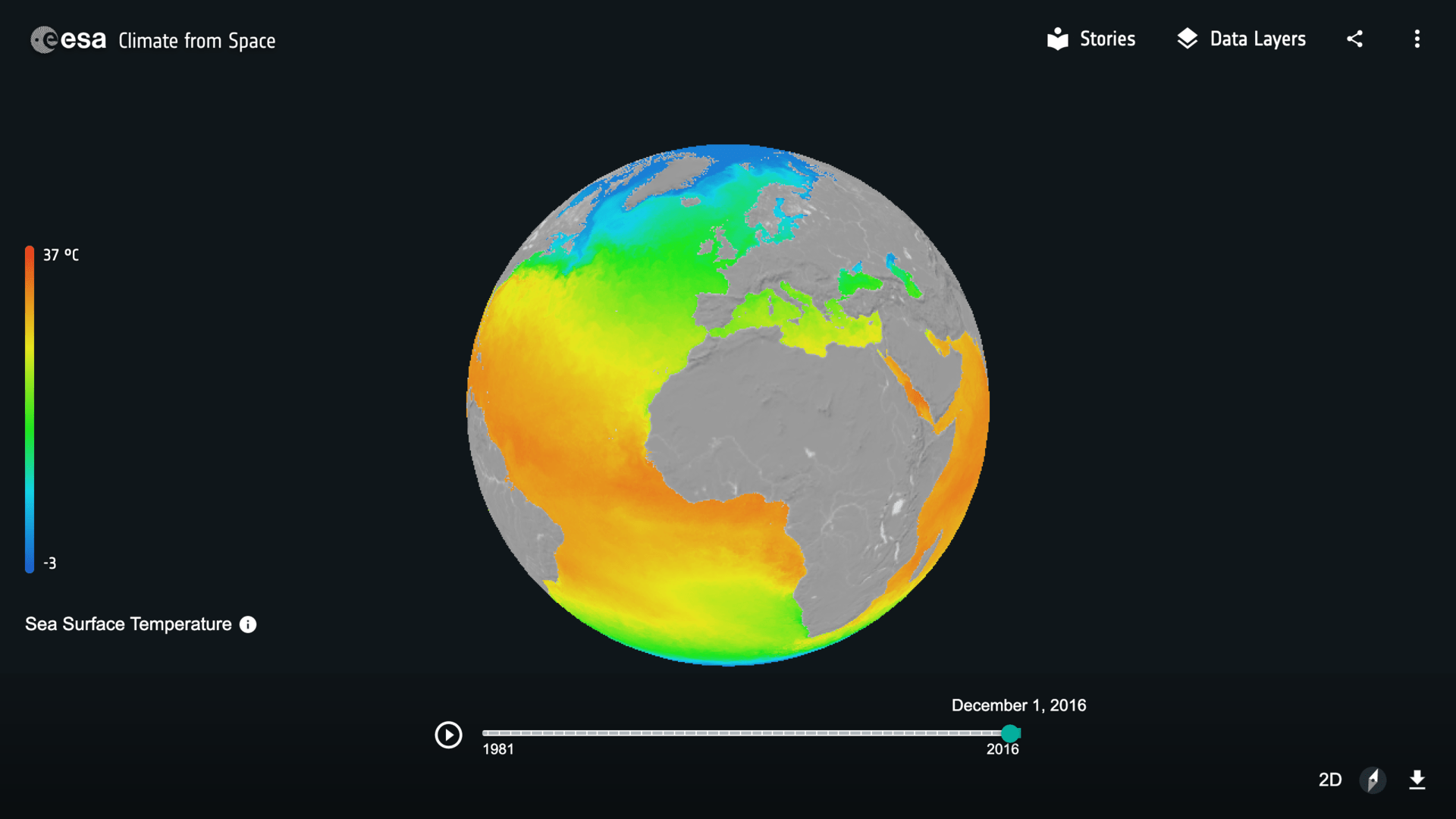Using interactive 3D globes, maps and hands-on storytelling, you can now explore ESA’s global satellite observations collected over five decades to see key aspects of our climate and how it is evolving.
From the vantage point of space, users can see for themselves how atmospheric greenhouse gases are rising, glaciers are retreating, and ice sheets are diminishing; and explore patterns of wildfires from the Arctic Circle, to the Amazon rainforest, and across the Australian bush.

The new, easy-to-use site provides access to the same satellite observations used by scientists to understand climate change and support international organisations such as the United Nations Framework Convention on Climate Change (UNFCCC) and Intergovernmental Panel on Climate Change (IPCC) to drive action.
There is a suite of 21 climate data records to explore, which are generated by ESA’s Climate Change Initiative. The suite includes sea level, sea surface temperature, soil moisture, snow depth and the greenhouse gases, carbon dioxide and methane, as well as new visualisations for the latest climate variables records such as permafrost and lakes.

Designed to raise awareness of the role that satellites play in climate monitoring, the ‘Climate from Space’ website can be accessed from a mobile, tablet device or desktop computer. Users can watch decades of global climate change unfold in seconds, pinch and zoom into a region, and compare individual climate variables, side-by-side.
The site features a series of self-guided ‘climate stories’ that explain how and why the climate is changing. These stories highlight the major changes occurring across the planet and the impacts they have on daily life now.
Darren Ghent, Earth observation scientist from the University of Leicester, says, “Climate from Space shows how climate change is affecting people and animals around the world, told through interactive stories. As a data scientist, it will be helpful to use Climate from Space to bring the datasets to life for different people, providing an easy online website ideal for exploring ESA’s global climate datasets.”

To complement the Climate from Space education, resources including school lesson plans will be made available later this year, while early-career scientists will be able to benefit from an online course and summer school focused on Earth observation and climate from 2021.
An Open Data Portal is already available, and gives free access to 250 TB of global data generated by ESA’s Climate Change Initiative. A cloud-based version of the Climate Analysis Toolbox for the ESA CCI (CATE) will be available this winter, enabling scientists to fully ingest, manipulate and process this data in a common data model.
Climate from Space was developed for ESA’s Climate Office by Ubilabs and Planetary Visions as part of a consortium led by Brockmann Consult. The Climate from Space site can be used at home, in the classroom or at exhibitions.






